Workplace Accidents Lawyers
When employees are hurt on the job, they have the option of filing for workers’ compensation. Workers’ compensation is a type of insurance that is designed to protect employees by replacing their wages and benefits when they are hurt and cannot work.
However, they also relinquish the right to sue except in specific situations, such as:
Because workers’ compensation only pays about two-thirds of an employee’s average wages, applicable retraining fees and medical bills associated with the injuries, a personal injury lawsuit to recover damages can help them recover their losses.
If you have been hurt at work, our San Jose personal injury attorney can help you decide if a lawsuit is a right choice.
How Does a Personal Injury Lawsuit Work?
A personal injury lawsuit is a civil case, which begins when the plaintiff, or the injured person, files a complaint against another party, such as another person, business or government agency, alleging carelessness, negligence or willful wrongdoing. Although some civil cases are formalized in court with one party held legally responsible for the injury, most are informally settled out of court. During an informal settlement, attorneys, insurers and other representatives for both parties negotiate.
Every personal injury case is unique, but most will follow a similar pattern, including:
- An initial meeting during which you will discuss your needs and concerns with an experienced San Jose personal injury attorney, who will help you determine the best way to proceed
- Filing the initial court papers to initiate the case
- Fact-finding and discovery, which is the information-gathering process
- Motions, or requests for the judge to make rulings on specific issues before the case goes to court
- Negotiations to reach a settlement
- Trial, which may be needed if a settlement cannot be reached
Types of Personal Injury Claims
Not every situation in which a person is injured qualifies for a personal injury claim or liability. Common types of personal injury claims include:
- Car accidents
- Pedestrian accidents
- Medical malpractice
- Slip-and-fall injuries
- Defective product claims
- Assaults and batteries
- Dog bites
These claims are focused on the injury done to an individual and typically involve liability, or responsibility, due to negligence, carelessness or wrongdoing.
Getting Compensation for a Personal Injury
When you have suffered property damage, injury or another loss as a result of another party’s negligence or carelessness, you are entitled to seek monetary compensation from the other party. This is called “damages.” Two kinds of damages can be awarded: compensatory and punitive.
Compensatory damages are damages that are intended to reimburse or compensate you for the harm you have suffered. Virtually all personal injury cases involve compensatory damages. Special compensatory damages refer to monetary expenses you may have suffered as a result of your injury. General compensatory damages refer to non-monetary damages, such as pain and suffering or mental anguish. Both of these can vary significantly from case to case.
Punitive damages are only awarded in specific cases and are intended to punish the negligent party when significant intentional wrongdoing has occurred.
Factors Affecting the Amount of Damages
When you are awarded special damages, the responsible party should reimburse you for any expenses you incurred as a result of your accident or injury and restore any money you lost as a result.
Factors that could affect the amount of damages can include:
- The amount of lost earnings and time off work
- Loss of future earnings and decreased earning potential
- Medical bills, including rehabilitation, physical therapy and future medical care
- Household expenses
- Costs associated with altered or canceled plans
Non-economic damages can vary based on the extent and circumstances of the injury and the physical and emotional pain you have suffered. Factors that can affect these damages include:
- Physical impairment, scarring or disfigurement
- Injury permanence
- Wrongful death
- Loss of enjoyment or consortium
- Long-term pain management needs
- Severity and duration of suffering
- Vitality and ability before and after injury
- Extent and invasiveness of treatment
No simple formula exists for determining damages, which is why having an experienced personal injury attorney can help. Our San Jose legal team can guide you through this difficult time and work to get you the maximum compensation so that you can rebuild your life.
If you have been hurt in a workplace accident, we can help. Schedule your consultation with one of our San Jose personal injury attorneys today.
